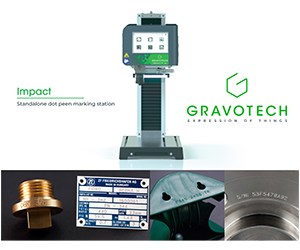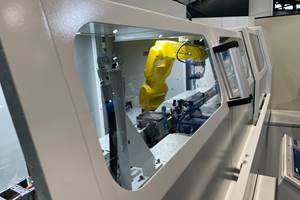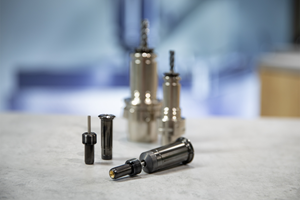Metalworking Fluid Increases Process Consistency
Integrating Chemetall’s Tech Cool 35052 metalworking fluid into its production process along with other production improvements helped Case New Holland improve machine uptime, tool life and part finish.
When Case New Holland (CNH) began looking for ways to distinguish itself from the competition, the company took a closer look at its manufacturing practices. In particular, the chemistry of its metalworking fluid showed potential for improvement after residue and corrosion issues led to additional maintenance and tool wear. Along with other process improvements, switching to a semi-synthetic fluid enabled the company to improve machine uptime, tool life and part finish while reducing machine operation costs by 60 percent.
CNH is an American-based company operating on five continents in both the agricultural and construction equipment industries. Its 700,000-square-foot Fargo, North Dakota, facility employs approximately 700 people involved in the design, manufacture, painting and assembly of high-horsepower, four-wheel-drive agricultural tractors and wheel loaders. The company uses large horizontal and vertical machining centers to manufacture welded steel assemblies and other mild carbon steel components. These steel assemblies—some weighing between 3,500 and 5,000 pounds—require machining processes such as helical milling, boring, drilling, reaming and tapping. Standard tooling and specially designed indexable carbide inserts, super cobalt, tool steel, coated tools and carbide drills are used throughout the production floor.
Setting up these machines for repeatable, consistent performance is one of CNH Fargo’s biggest challenges, says Shaun Bratsch, manufacturing engineer. Predictable tool life and scheduled tool changes are critical for managing and meeting quality quotas at the plant’s maximum production rates. However, prior to 2012, it was common for spade drills to break and unexpected tool changes to interrupt production. Another disruption was caused by the high-lubricity synthetic coolant the company used, which left sticky residues that fouled the automated tool changers and caused corrosion. Additional maintenance, combined with the cost of tool wear and breakage, cost CNH an average of $20 per hour, per machine.
To minimize these interruptions and chart a smoother manufacturing process, CNH management met with its tool suppliers and implemented production improvements such as modifying chip breakers, introducing coated tools, improving tool design and providing additional training. Yet, even with the tool design changes, vibration analysis, clamping changes and machine maintenance improvements, the company realized there was still more room for improvement, specifically in optimizing metalworking fluid chemistry, fluid testing and on-site troubleshooting.
A team led by Mr. Bratsch and Manufacturing Engineering Manager Bill Moser worked closely with chemical supplier Chemetall (New Providence, New Jersey) to evaluate a new coolant program. After six months of evaluation, during which various machining cells were used to cover the plant’s most challenging operations, the group selected Chemetall’s Tech Cool 35052. According to the company, the high-lubricity, semi-synthetic coolant demonstrated no corrosion or sticky buildup. It also met both ASTM International and environmental health and safety (EHS) test methods for lubricity, foam, biological challenges, rust, health and safety.
As part of Chemetall’s “green line” of formaldehyde-free metalworking fluids, Tech Cool 35052 can be used to machine Inconel, stainless steel, forged steel, aluminum and other ferrous and nonferrous alloys. The micro-emulsion coolant is designed to maintain a highly stable emulsion under difficult conditions, reject tramp oil and provide extended sump life.
Using the new coolant and implementing programming changes, operators quickly noted increases in tool life. For example, spade bit uptime increased from 20 to 60 minutes. The extended tool life, along with the ability to increase cutting speeds and machine uptime, reduced the average cost per hour from $20 to $8—a 60 percent cost reduction that saved the company $188,000 annually.
Another benefit of the new metalworking fluid was an improved work environment. Eliminating the use of registered biocides enabled CNH Fargo to generate less waste and reduced corrosion, skin irritation and spindle maintenance. According to the company, odors were also reduced, even under longer periods of machine operation without dumping or cleaning the sumps.
The Tech Cool fluid is helping CNH Fargo reach its goal of driving the facility’s product quality toward a zero-defect environment. In fact, the company says it reduced its scrap rate associated with machining defects by 5 percent, while improving surface finish and quality. Fewer tool changes, maintenance requirements and sump change outs have led to increased machine uptime, which in turn increases production rates.
Chemetall continues its on-site work with CNH Fargo to improve sump maintenance, manage tramp oil leaks and removal of tramp oil, and provide ongoing operator training. By converting to Tech Cool 35052, Mr. Bratsch says CNH Fargo has greatly reduced the non-value-added activities that historically eroded its productivity. “We expect a lot from ourselves and our suppliers. Our agricultural customers demand high quality from our equipment, and we aim to always deliver,” he says.
Related Content
IMTS 2022 Review: Attention to Automation Extends Beyond the Robot and the Machine
The advance toward increasingly automated machining can be seen in the ways tooling, workholding, gaging and integration all support unattended production. This is the area of innovation I found most compelling at the recent International Manufacturing Technology Show.
Read MoreRego-Fix Toolholding System Reduces Coolant Consumption
MQL PG collets are designed for machines using one-channel, internal through-spindle MQL systems.
Read MoreHigh-Speed Videos Analyze Machining Processes in Fine Detail
Blaser Swisslube captures the machining process, chip formation and behavior of its Synergy 735 metalworking fluid through high-speed, macro photos and videos.
Read MoreUnist's Electronic Control Regulates Lubricant Delivery
Unist’s Pulse R electronic control ties into the system control solenoid valve and takes the place of a pneumatic pulse generator timer or logic block.
Read MoreRead Next
Obscure CNC Features That Can Help (or Hurt) You
You cannot begin to take advantage of an available feature if you do not know it exists. Conversely, you will not know how to avoid CNC features that may be detrimental to your process.
Read MoreThe Cut Scene: The Finer Details of Large-Format Machining
Small details and features can have an outsized impact on large parts, such as Barbco’s collapsible utility drill head.
Read More3 Mistakes That Cause CNC Programs to Fail
Despite enhancements to manufacturing technology, there are still issues today that can cause programs to fail. These failures can cause lost time, scrapped parts, damaged machines and even injured operators.
Read More
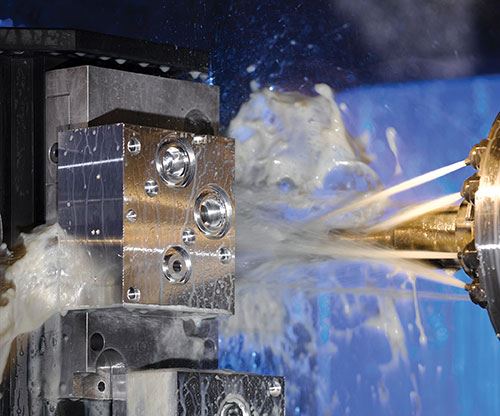
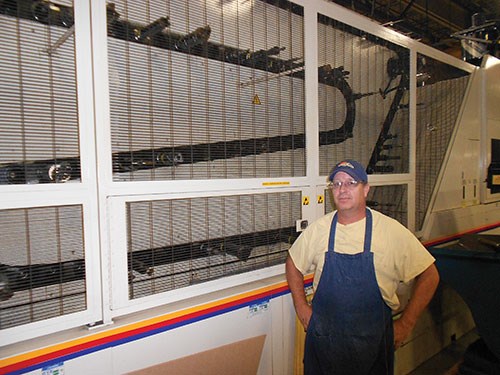
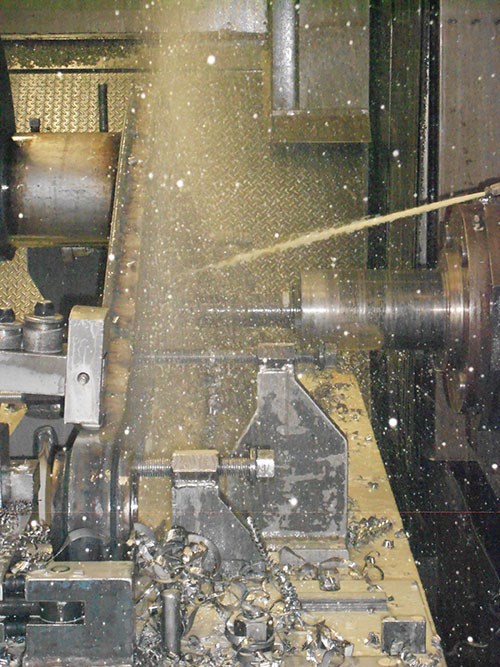





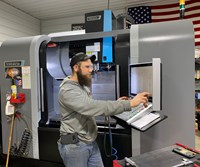


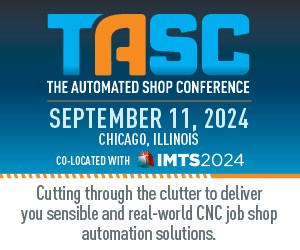


.png;maxWidth=300;quality=90)
